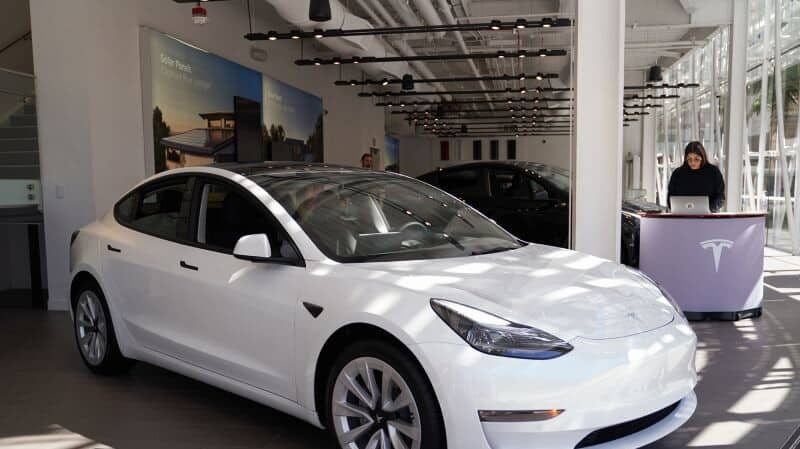
Could Donald Trump's tariffs benefit Elon Musk's Tesla?
What's the story
US President Donald Trump recently imposed new tariffs on Chinese goods and threatened a trade war with allies like Mexico and Canada. These developments are likely to have varied impacts on global companies. However, one firm that may suffer less than most of its competitors is Tesla, the EV maker led by Elon Musk. Despite the negative implications of these policies for many businesses, Tesla's unique position could give it an edge over its competitors.
Resilience
Self-sufficient supply chains
Tesla has built mostly self-sufficient supply chains in the US and China, which is a rarity in today's interconnected trade world. This means that the tariffs imposed by the Trump administration on Chinese goods could actually work in Tesla's favor by putting its competitors at a disadvantage. Despite challenges in Europe and China, Tesla's domestic production and strategic positioning offer resilience against tariffs and trade tensions.
Advantage
Potential impact of Trump's tariffs on Tesla's rivals
While Musk hasn't directly shaped trade policies, Trump's tariffs could unwittingly benefit Tesla at the expense of its rivals. The Trump administration recently paused 25% tariffs on most autos and parts made in Canada and Mexico. However, the reprieve is set to expire in a month, leaving US carmakers heavily reliant on foreign supply chains in a state of uncertainty.
Policy implications
Trump's policies could hinder Tesla's competitors
The Trump administration is also planning to eliminate financial support for the construction of fast-charging stations for EVs. This could put firms trying to compete with Tesla's extensive network at a disadvantage. Additionally, it is attempting to cut or eliminate loans and subsidies that rivals like Ford and Rivian are using to finance EV and battery factories.
Trade stance
Musk's silence on trade policies and fossil fuel promotion
Despite the potential implications of these policies, Musk has largely remained silent about trade or the administration's promotion of fossil fuels and hindrance to EV sales. The silence comes even as his support for Trump has caused protests at Tesla dealerships and weighed on Tesla's share price. However, his position as a de facto member of Trump's Cabinet gives him influence that far exceeds any other auto executive.
Market challenges
Potential risks and challenges for Tesla
The trade war and other Trump policies also hold risks for Tesla, particularly as the firm is already in crisis with sales plummeting in China and Europe. Musk's extensive investments in China make him vulnerable to rising trade tensions between the Chinese government and the Trump administration. Additionally, Tesla is already struggling in China and Europe because of competition from Chinese EV makers and a dearth of new models.
Strategic approach
Tesla's unique supply chain strategy and production
When Tesla started mass-producing EVs in Fremont, California, in 2012, it designed a supply chain that was less reliant on imports than almost all of its competitors. Today, Tesla is one of just a few carmakers to mass-produce batteries in the United States. Despite challenges like competition from Chinese EV makers and political controversies surrounding Musk, Tesla continues to benefit from its strategic positioning and strong domestic production capabilities.